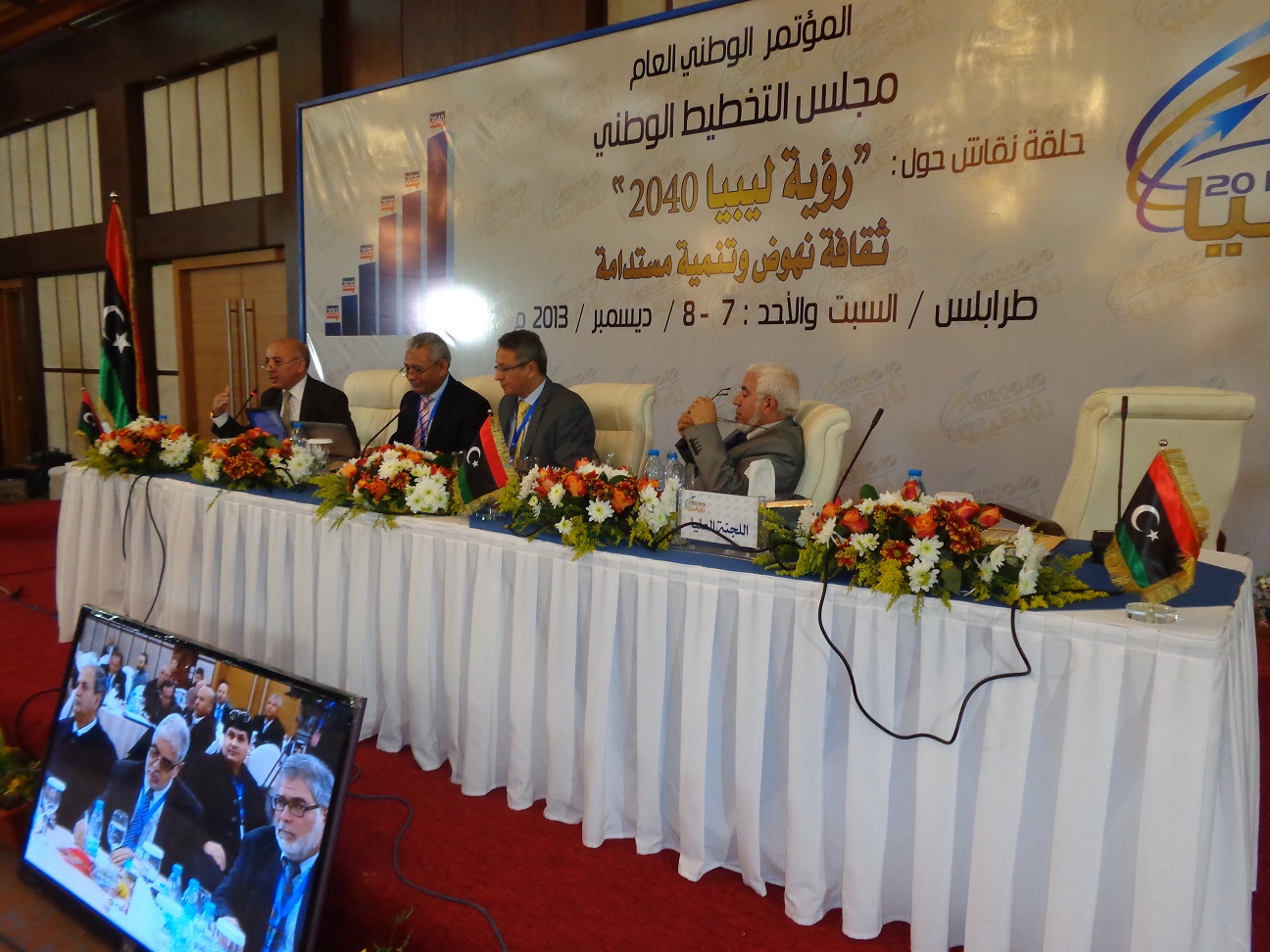By Sami Zaptia

Tripoli, 8 December 2013:
The National Planning Council (NPC), which describes itself as the consultative body for the General National . . .[restrict]Congress, held a two day conference at the Radisson hotel 7-8 December on “Libya 2040 Vision – a culture of sustainable development”.
The conference, attended by politicians, academics, GNC members, businessmen and NGOs discussed Libya’s future vision in the fields of economy, human resource development, health, environment, security and culture and science.
The NPC general future vision for Libya is one where there is “high competitiveness, quality, continuous renewal of ideas and fast access to international markets”.
It calls for the “renewal of traditional employment and reinforcement of the role of the private sector”. It envisages a Libya with independent NGOs playing a more active and wider role.
The NPC sees Libya’s political system “obtaining local and international legitimacy by virtue of its achievements in sustainable development and democratic reform”, and it sees the creation of a “knowledge-based society where the knowledge base is the asset upon which Libya’s political and economic strength is built”.
At the conference, the NPC admitted that their 2030 vision plan was an update of and built upon the 2025 vision plan prepared during the Qaddafi regime. They felt that the 2025 vision had been politically constrained by the ideology of the Qaddafi regime and that it was therefore necessary to take a fresh look at the vision and make it relevant for the new Libya: A democratic Libya based on a free market, competitive economy.
It is worth noting that the Libyan government, the executive branch, has also created another separate body, named the “2030 Vision” Committee headed by Issa Twejri the former Minister of Planning under Prime Minister Al-Kib.
As reported by Libya Herald the government’s “2030 Vision” Committee had held its inaugural meeting in May this year. [/restrict]








